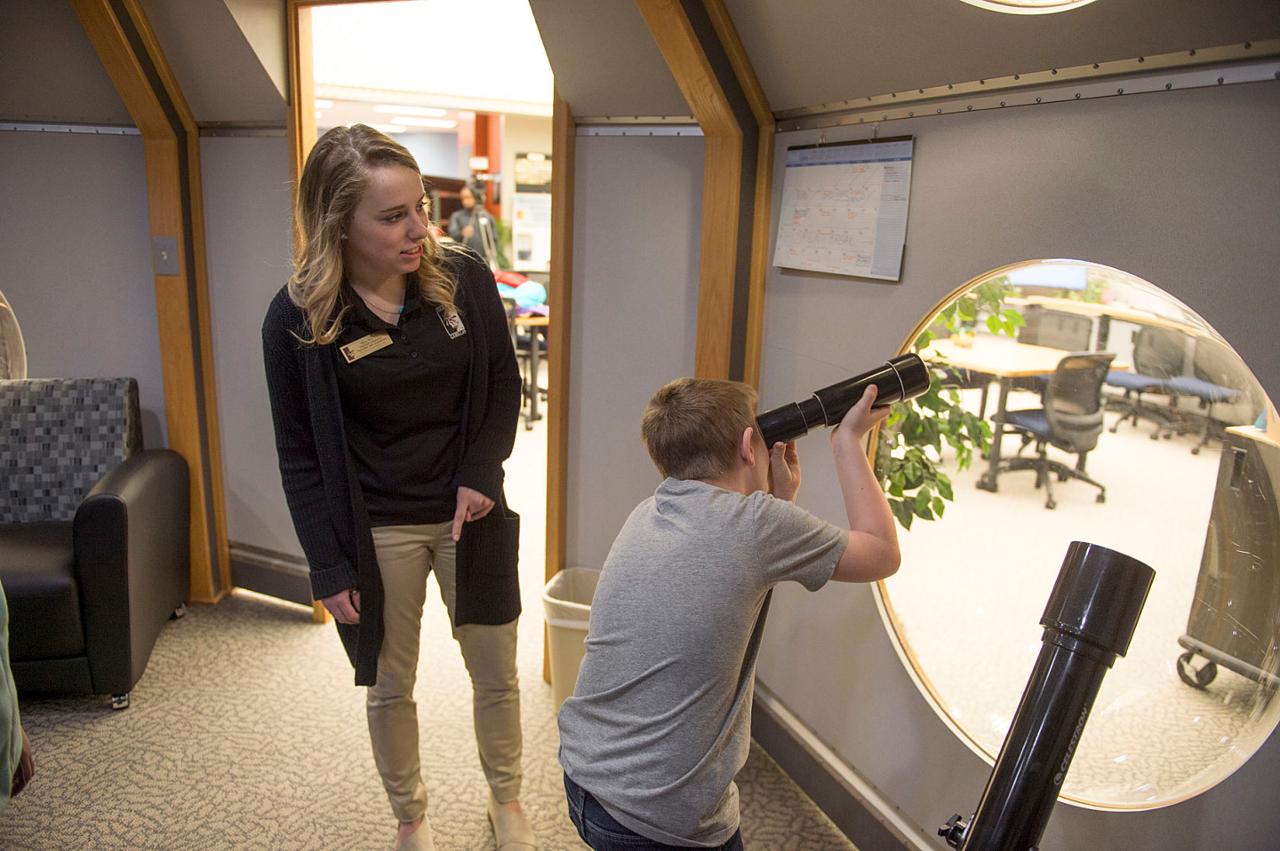Technology and Engineering Education
Major
Request Information
Overview
The undergraduate degree in Technology & Engineering Education (T&EE) prepares students to be licensed teachers of industrial technology, technology education and pre-engineering at the middle and high school level (grades 6-12). The program is housed in the Kansas Technology Center which and has state of the art laboratory, providing the high-tech space to deliver Technology and Engineering Education courses. The program focuses on hands-on, activity-based classes engaging students in meaningful educational experiences in areas of communications, power, energy, transportation, materials and processes, construction, manufacturing, design, robotics, 3D prototyping and more. Students can also participate in local, regional and national activities through the Technology & Engineering Education Collegiate Association (TEECA).
Fast Facts and Highlights: Recognized as one of the leading Technology and Engineering Education programs in the US; Near 100% placement of graduates over the last 10 years. The PSU TECA has extensive equipment/facilities both in the lab and throughout the Kansas Technology Center. Faculty have received national recognition and received numerous awards.
Additional information
- Why Pitt State Technology and Engineering Education?
- Outcomes
- Career Options
- Technology and Engineering Education Collegiate Association (TEECA)
The Technology and Engineering Education program at Pitt State specializes in technology & engineering education (which includes STEM education), allowing students to teach high school courses in CAD, woodworking, robotics, CNC machining, metalworking, screen printing, graphic design, welding, pre-engineering, etc. Class sizes are usually small with class/labs having less than 18 students. There is a national need for Technology and Engineering Education teachers, which means you will get a job after graduation with very competitive wages. Our labs are state of the art with the latest software, hardware, machines and equipment. Hands-on learning is the bases for our programs, you learn by doing! Students can select a minor if they choose which are taken in industry-based programs giving them additional technical content in any of the 21 minors in the College of Technology.
2. Demonstrate sufficient knowledge of design, engineering and problem solving.
3. Apply design and engineering principles by implementing the design process through problem solving activities involving hand and CAD drawings.
4. an understanding of the designed world, the abilities [knowledge and skills] needed in a technological world, and the career fields associated with it.
5. Demonstrates an understanding of knowledge and applications of major concepts, principles, theories and systems–inputs, processes, outputs and feedback associated with energy, power, and transportation technologies.
6. Perform skills necessary for teaching energy, power and transportation technologies.
7. Demonstrates an understanding of knowledge and applications of major concepts, principles, theories and systems–inputs, processes, outputs and feedback associated with information and communication technologies
8. Perform skills necessary for teaching information and communication technologies.
9. Demonstrates an understanding of knowledge and applications of major concepts, principles, theories and systems–inputs, processes, outputs and feedback associated with production—manufacturing and construction technologies.
10. Perform skills necessary for teaching manufacturing and construction technologies.
11. Demonstrates an understanding of organization, maintenance and management, safety and laboratory practices associated with teaching technology and engineering education.
12. Perform tasks associated with organization, maintaining and managing safe technology and engineering laboratories.
13. Demonstrates an understanding of the technology and engineering education profession and its curriculum and instructional practices
14. Develop skills in curriculum design and instructional practices through practical applications and practices
15. Integrate technology-related content into an academic class in the K-12 classroom.
Middle School, Junior High or High School:
- Technology & Engineering Teacher
- Technology Education Teacher
- EbD or Project Lead the Way (PLTW) Teacher
- Industrial Technology or Industrial Technology Education Teacher
According to the Bureau of Labor Statistics, the national annual medium income for teachers is $58,030.00 with the median income in Kansas and Missouri is $48,740.00 for a nine month contract. The average starting salary is between $35,000.00 and $40,000.00 for nine months.
Teachers can supplement their income as much as $2,000.00 to $8,000.00 by coaching a sport, being a club sponsor such as robotics for $1,000.00 to $2,000.00, or teaching drivers education, for approximately $6,000.
Technology and Engineering Education Collegiate Association (TEECA) student organization promotes leadership, fellowship, scholarship and a philosophical foundation for future technology & engineering teachers, and technologist through college chapter coordinated activities at the campus, state, regional, and a national level as a pre-professional organization. Annually the members travel to a regional conference and competition in the Fall, and in the Spring they attend the International Technology and Engineering Educator's Association conference and competition where they compete in seven different events. Historically, PSU's TEECA places in the top three in several events annually. Pitt State's TEECA also participates in several community service projects each year.
About Technology and Workforce Learning Department
The Department of Technology and Workforce Learning includes several undergraduate and graduate degree programs. Programs of study include two-year associate and certificate programs as well as several undergraduate and graduate degree programs.
